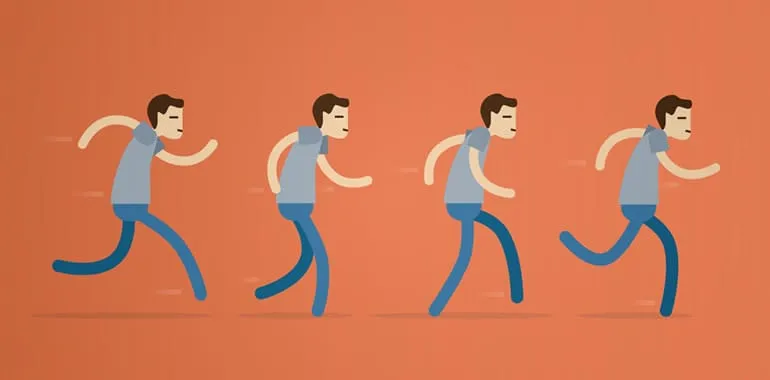Chronic pain is perhaps one of the most frustrating conditions for a health care provider to treat as well as for patients to deal with. The model used to train many of us was to identify a disease or injury by looking for a mechanical or chemical cause for the pain and then address the cause. We now have a better understanding of how changes in neural pathways, trauma, and psychological factors, not necessarily the amount of tissue damage, contributes to the chronic pain experience.
Healing for chronic pain is not a procedure, nor can it be prescribed. It is a process that requires time and effort to make real changes in tissue tolerance and nutrition. Movement is the key to restoring local tissue nutrition and optimal function. Healing is powered by movement, which makes movement fundamental to our survival.
When there is impaired wellness and limited movement, pain is not just a possibility, it is a guarantee.
Chronic pain can have very REAL effects on your nervous system. The parasympathetic nervous system is what is responsible for helping you feel relaxed and at ease, when it is working properly. A system that is in a constant state of “high alert” due to “perceived threat” will eventually create non-ideal changes in the brain, ones that are not easy to undue. Your brain will then begin to anticipate the pain and even create what’s called a “neuro-tag” to certain movements, it could be the same movement in which you injured your back. For example- bending or the thought of bending could elicit pain for no physical reason, just that the brain has developed a “neuro-tag” for this movement.
That’s not all…
When the body is in a constant state of “fight or flight” or it perceives small movements as threats, there is a “stress response”. The stress response causes an increase in our cortisol levels. https://www.stress.org/how-the-fight-or-flight-response-works
Extra cortisol is also released with emotional stress (negative thoughts, worrying, feeling hopeless)- many of the things people in chronic pain feel and report.
Too much cortisol for a prolonged period of time will cause weight gain, increased sensitivity to pain, depression, anxiety, fatigue, poor memory, focus and cognition.
Yes, it is a vicious cycle.
What can you do to help yourself?
#1 Find the root cause of your problem
Many times the real cause of the problem is missed by many practitioners and for many years. Tip: See a Physical Therapist who is a top notch diagnostician in order to figure out how you can be helped. *Physical Therapists use special techniques that can put different inputs into your higher centers and create new experiences when the tissue lengthens or contracts, altering physiology and behavior!
#2 Get enough sleep!
Lack of sleep is one of the biggest predictors of injury.
The body needs even more sleep than usual when it is healing. The way you feel when you are asleep depends on how you slept. I’ve written a whole blog on this: https://universuspt.com/a-good-nights-sleep/
#3 Movement is Medicine!
Prolonged sitting carry the same mortality risks as obesity and smoking (Mayo Clinic). We recommend graded movement, movement and alignment training, breathing training and Yoga. https://universuspt.com/yoga-for-healing/ Yoga is well suited to train the mind, body and soul. Yoga combines mindfulness exercises, breath control exercises, active or restorative yoga postures, guided exercises to calm the nervous system and practices to focus the mind.
#4 Mindfulness practice
This can be obtained with a yoga practice yet it should be practiced in isolation as well and frequently throughout the day. Studies show that practicing mindful meditation helps to lower cortisol levels, decrease pain and depression and increase physical function and quality of life.
#5 Diaphragm Breathing
The diaphragm muscle is your main organ for breathing and plays a big role in almost all types of chronic pain. With chronic pain the diaphragm flattens and becomes very stiff. Physical Therapists teach patients how to lengthen the diaphragm with specific exercise and/or manual therapy techniques.
#6 The Power of Positivity
“Whether you think you can, or you think you can’t, you’re right.”-Henry Ford. Your beliefs affect your outcomes and your hormones. Work on the story you are telling yourself.
#7 Good Nutrition and Enough Water
Keep your diet balanced and unprocessed, limit your intake of sugar, and focus on whole foods. Other tips: keep a food journal and do not skip meals! Nothing is worse for fluctuations in cortisol than skipping meals! (It’s why you get “hangry” when you are hungry) Check out this blog on water: https://universuspt.com/why-coffee-isnt-water/
…and this one on an anti-inflammatory diet: https://universuspt.com/inflammation-how-the-fix-can-be-found-in-the-grocery-store-not-the-pharmacy/
Summary:
Keeping our body well rested, active, mentally fit, and fueled with a healthy diet is the best defense against musculoskeletal pain and disease! There is much we can do to help people with chronic pain.
If you would like to learn more about how we can help, do not hesitate to reach out to us at Universus Physical Therapy. We offer all new patients a FREE discovery visit (you can discover what the issue is and get some professional advice prior to any commitments). https://universuspt.com/contactus/
I hope this has helped you feel a little more hopeful
All the best,
Dr. Shaden Ghattas, PT


